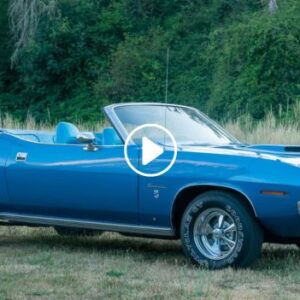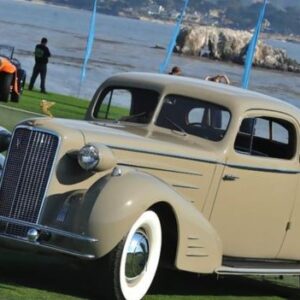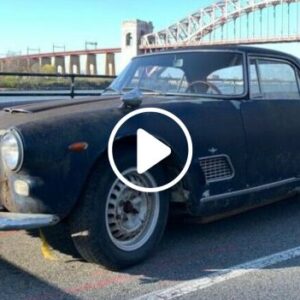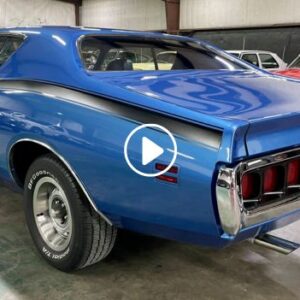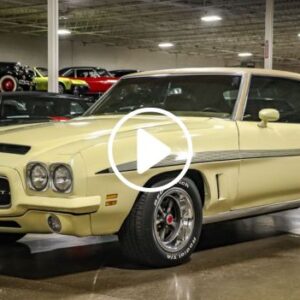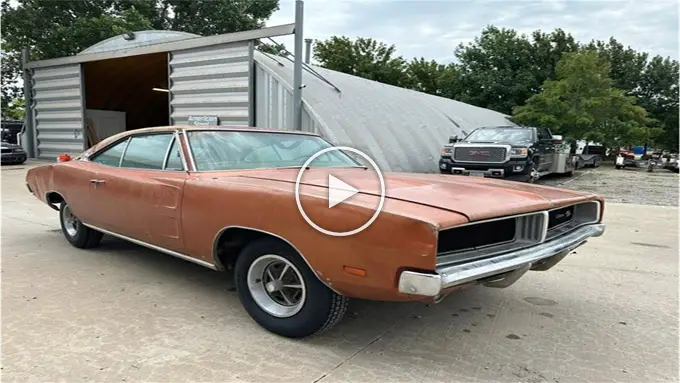
The R/T package was the differentiator between road cars and Super Cars (Dodge advertised the high-performance Charger with the tagline: `The Man’s World of Super Cars. Past and Present.`). It didn’t waste any time putting its big-blocks where its high-performance mouth was.
Probably one of Dodge’s most coveted models, the Charger had one body style – the two-door hardtop – and two engine options for the R/T models. Standardized across the board, the displacement overlord 440 CID V8 (7.2 liters) was the go-to choice for most buyers.
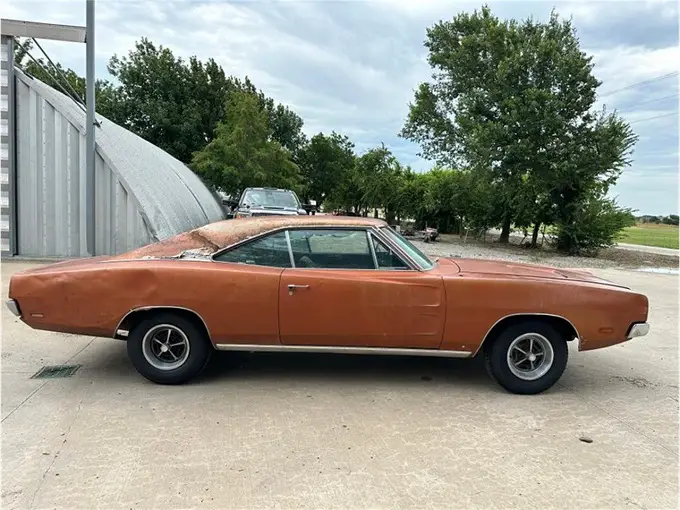
The R/T optional powerplant was the 426 CID (7.0 liters) HEMI, but few were ordered in this configuration – to no one’s wonder since the dome-shaped combustion chamber alternative was a $650 option. That’s almost one-fifth of the R/T starting price of $3,575.
Almost one in four Dodge Chargers assembled for the 1969 model year had the muscle add-on – the best-selling year for this particular R/T configuration. This last feature reveals that the 1969 Dodge Charger R/T is not a rarity, but this doesn’t stop it from being held to high value today.
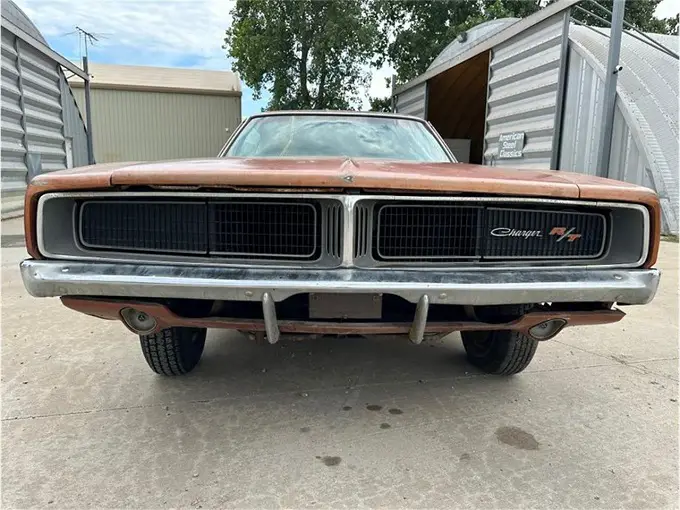
To make it razor-sharp accurate, that value would be $44,000 for a project car like the one in the video. Don’t be intimidated by the rusty hue; it’s only an optical illusion from the Light Bronze Poly paint. Unfortunately, the optical delusion under the hood puts a steadfast grip on a buyer’s interest.
The car is for sale and advertised as complete, minus some of the engine components that had a stroke of unknown bad luck at some point. To add to the misery, the drivetrain is allegedly original to the car (440 four-barrel with a three-speed auto).
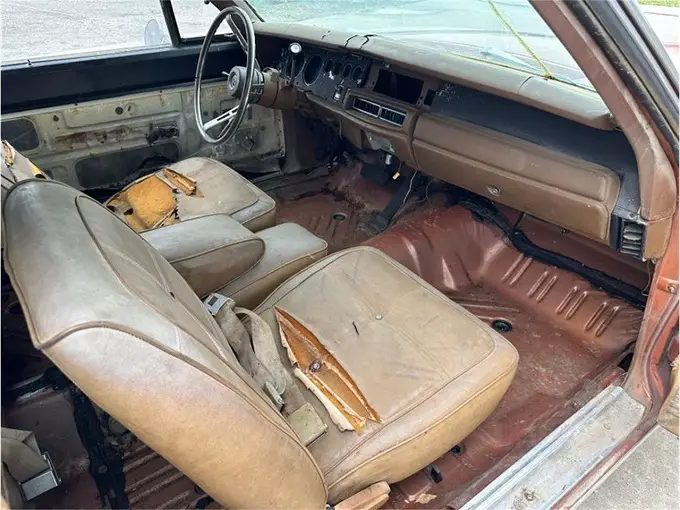
Regardless of how well-equipped the car was when it left the factory (and it was loaded – look at the trim tag photo; there’s no room left on it), it is just a desecrated drag at the moment. The valve covers, intake manifold, carburetor, and air cleaner are no more.
The interior isn’t in a much better shape either: the front bucket seats look like they went to a knife fight and lost, and the sagging headliner is yet another sad reality check. Also, the driver’s door is not the part that the factory installed. The white vinyl top is long gone, too – California car-friendly weather or not, this Dodge spent many years in an atmosphere of neglect and oblivion.
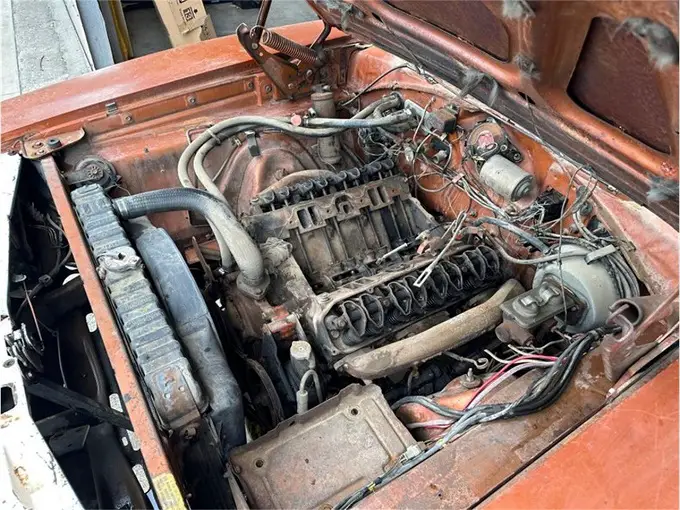
The asking price of $44k is sadly in line with the current trends for the Charger market, but the restoration on this car would probably double that price. Apart from the evident left rear fender (wrinkled and full of blisters), the right rear quarter and left front fender also need attention.
The undercarriage is rust-free (apart from normal surface metal oxidation) and appears in acceptable condition. The battered Charger is originally a California car, but it’s offered for sale in Allen, Texas.
